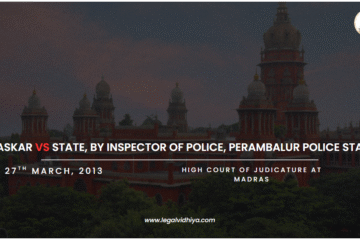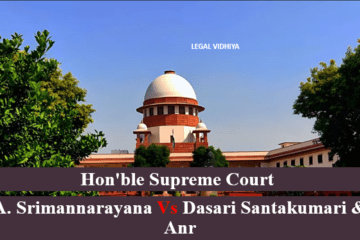
Cases referred
- Association for Democratic Reforms (ADR) v. Union of India in 2002
- People’s Union for Civil Liberties v. Union of India
- Public Interest Foundation and Ors. v Union of India
- Lok Prahari v. Union of India
- Rambabu Singh Thakur v Sunil Arora & others
Introduction
- On 14 January 1964, Lily Thomas filed one of the first petitions challenging the validity of the ‘Advocate on Record’ system in the Supreme Court. In the case of In re Lily Isabel Thomas, AIR 1964 SC 855, it was argued that, as an advocate entitled to practice in this Court, she possessed not only the right to plead but also to act, rendering the Rules of this Court, which prescribed qualifications before she could be permitted to act, considered invalid. Consequently, she sought the declaration of Rule 16(1) of Order IV of the Supreme Court Rules as amended in 1962, containing this qualification requirement, as ultra vires. While her petition did not succeed, it initiated the filing of numerous petitions on this matter, sparking multiple debates on the AOR system since then.
Facts of the case
- Public interest litigation was initiated by filing a petition under Article 32 of the Indian Constitution. In this litigation, they challenged the constitutionality of Sub-section 4 of Section 8 of the Representation of People Act, 1951. The primary aim of the petition was to restrict the entry of convicted individuals into legislative houses and reduce the influence of criminalization in politics.
- Article 102(1) and Article 191(1) of the Constitution of India outline the disqualifications for membership in Parliament and Legislative Assemblies, respectively. These provisions also grant the central government the authority to amend the rules governing member disqualifications as they deem appropriate.
- Section 89(4) of the Act specifies that if a sitting member of the house is convicted of an offense punishable by more than two years of imprisonment and subsequently files an appeal within three months of the conviction, they shall not be disqualified from holding membership in the house.
Issue of the case
- Is the public interest litigation challenging the constitutionality of Sub-section 4 of Section 8 of the Representation of People Act, 1951, under Article 32 of the Indian Constitution, effectively addressing the issue of restricting convicted individuals’ entry into legislative houses and combating the influence of criminalization in politics?
- Whether Sub-section 4 of Section 8 of the act, was an ultra-virus to the constitution of India, and if it had contradicted the objective of the framers of the constitution?
- Whether the convicted person has any remedy provided if the appellate court has acquitted that person?
Arguments:
The Petitioner contended that
- Mr. Fali S. Nariman, the learned Senior Counsel representing the petitioner in Writ Petition of 2005, along with Mr. S.N. Shukla, the General Secretary of the Petitioner in Writ Petition of 2005, have contended that the introductory clauses of clause (1) in Articles 102 and 191 of the Constitution clearly indicate that identical disqualifications apply to individuals seeking election as a member of either the House of Parliament, the State Assembly, or the Legislative Council of the State, as well as individuals currently serving as members of either the House of Parliament or the Legislative Assembly or Legislative Council of a State.
- Consequently, they assert that the disqualifications for becoming elected as a member of either the Parliament or the Legislative Assembly or Legislative Council of the State, and for maintaining membership in either the Parliament or the Legislative Assembly or Legislative Council of the State, must remain consistent.
- In substantiating their claims, the petitioners referred to a Supreme Court case involving a Constitutional bench, namely, Election Commission of India v. Saka Venkat Rao (AIR 1952 210 SC 1), in which it was asserted by the Court that the disqualifications should be consistent for both participating in an election and maintaining membership.
The Respondent maintained the following objections that
- Mr. Siddharth Luthra, the learned ASG representing the Union of India in Writ Petition, argued that the Constitutionality of sub-section (4) of Section 8 of the Act has been affirmed by the Constitutional Bench of this Court in K. Prabhakaran v. P. Jayarajan, etc.
- He contended that in response to , the Constitution Bench ruled in Prabhakaran’s case that the purpose behind including a provision in sub-section (4) of Section 8 of the Act is not to bestow an advantage upon incumbent members of Parliament or State Legislatures but to safeguard the integrity of the House.
- He further stated that in paragraph 58 of the judgment, the Constitution Bench clarified that if a member of the House were disqualified from attending sessions and participating in proceedings immediately upon the pronouncement of conviction and subsequent sentencing to imprisonment, which also results in the forfeiture of their membership.
Judgment:
- On July 10, 2013, a verdict was delivered by the Supreme Court’s bench comprising Justice A.K. Patnaik and Justice S.J. Mukhopadhyay. The judgment determined that the argument presented by the petitioners regarding the disqualification criteria for candidacy and membership continuation being identical, thereby signifying that Parliament had exceeded its legislative authority by enacting sub-section (4) of Section 8 of the Act. It was also declared that this provision was indeed in violation of constitutional provisions.
- Furthermore, the Court made an observation that the sitting members who had previously benefited from Sub-section 4 of Section 8 would not be impacted by this ruling. However, if any incumbent Member of Parliament or a state legislature is convicted under sub-sections 1, 2, and 3 of Section 8, they would be disqualified in accordance with this judgment.
Conclusion
- Although the Supreme Court has approved of the new requirements through its judgment in the year 2018, it is really important to understand that the majority of the voters in our country belongs to rural areas are not literate enough to understand and analyze the criminal records of any candidates who are contesting the elections.
- Therefore the Election Commission should be given the hold from debarring the candidates from holding elections who have committed the heinous crimes or against whom the charge sheet is framed for committing heinous crimes, as the judiciary must have applied their judicial mind before forming such charges against the candidates.
Drafted by: Jhalak Varshney, Lloyd Law college, Greater Noida




0 Comments